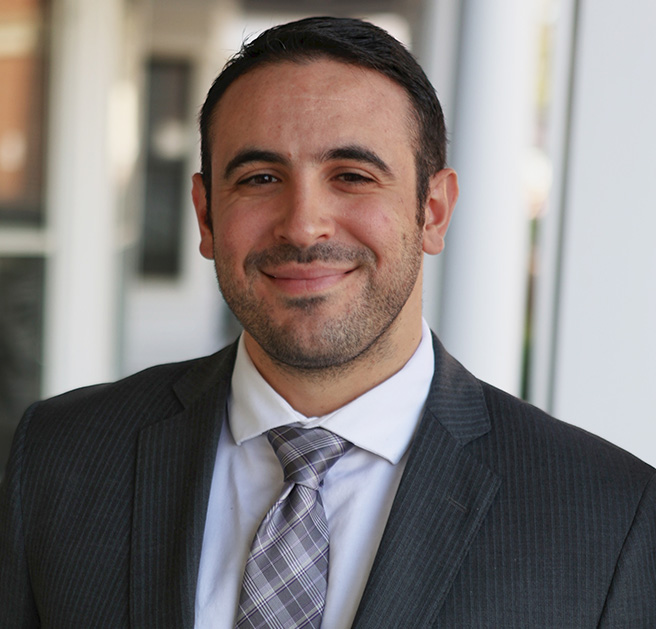The Supreme Court, State of New York has adopted new Alternative Dispute Resolution (“ADR”) Rules for civil cases, forming a new ADR Part with the express goals of fostering negotiation to help settle disputes, narrowing the issues to be adjudicated, and/or assisting the parties to understand each other’s positions and interests. The new ADR Part in Suffolk County is managed by judges, JHOs and court attorneys, and will play an early role in civil cases beginning at the preliminary conference.
HOW WILL THE NEW ADR PART WORK?
Commencing October 7, 2019, a court attorney assigned to the Suffolk County ADR Part will be present in the Differentiated Case Management (“DCM”) Part during all preliminary conferences (“PC”). If a bill of particulars has not been served prior to the PC, the attorneys for the parties will complete a case summary form provided by the court attorney, who will determine whether the case will be assigned to an IAS Part or go straight to the ADR Part. A referral order will be issued setting forth various timelines depending on the decision made by the ADR Part attorney.
For commercial cases not assigned to the commercial division, a limited PC order will require documents to be exchanged within fifteen (15) days of the referral order and a settlement conference will be held within thirty (30) days. The early discovery exchange is limited to targeted, core discovery, and is intended to frame issues for resolution at the early settlement conference. However, the initial exchanges are deemed part of discovery under the Civil Practice Law and Rules, and responses under the order are subject to the amendment and supplementation requirements of CPLR 3101(h).
Parties involved in commercial cases assigned to the ADR Part will also have the option to participate in mediation pursuant to 22 NYCRR 202.70, the Commercial Division Mediation Program.
Cases that are not referred to the ADR Part for an early settlement conference due to their complexity will be assigned directly to an IAS Part. However, the first conference before the assigned judge will appear on a calendar separate from the court’s general conference calendar.
Personal injury cases assigned to the ADR Part will also receive a limited PC Order requiring targeted discovery documents, but the timeline and requirements are different. Specifically, documents are to be exchanged within twenty (20) days and the plaintiff’s deposition will be held within ninety (90) days. A settlement conference will be held within 120 days and will be organized by insurance carriers when applicable.
Of course, not all cases referred to the ADR Part will be disposed of through early settlement. In such instances, where litigants cannot come to a resolution, the matter will be dealt with traditionally in court rather than through mediation or another alternative method.
PRESUMPTIVE ADR PROGRAMS HAVE PRODUCED POSITIVE RESULTS
This new initiative in New York represents a significant change to the state court legal system and will hopefully reduce the ever-increasing backlog in the judiciary.
Chief Judge Janet DiFiore commented that the new system is also intended to provide an avenue for litigants to resolve legal matters more efficiently and at a lower cost. “Making ADR services widely available in civil courts throughout the State—and facilitating the use of such services as early as possible in the case—are major steps toward a more efficient, affordable and meaningful civil justice process,” Chief Judge DiFiore said.
The advisory committee responsible for exploring and developing the new ADR Part looked at court ADR programs across the nation, but placed special attention on New Jersey, where there has existed an automatic, presumptive mediation program for more than a decade. The New Jersey program, although met with initial reluctance, has proven very effective and, according to some, has become an indispensable part of the state court system.
New York judicial leaders hope that the new program will fulfill an “important public need.” Chief Administrative Judge Lawrence Marks echoed that expectation, saying the new system will help advance the goals of justice for litigants in New York going forward. “Court-sponsored ADR has a proven record of success, with high settlement rates and strong user satisfaction among litigants and lawyers,” Chief Administrative Judge Marks said. “We are eager to move ahead as we bring ADR into the mainstream, offering a far broader range of options to conventional litigation in our ongoing efforts to streamline the case management process and better serve the justice needs of New Yorkers.”
It remains to be seen how effective the new ADR Part will be in Suffolk County, and while any significant change can be cause for apprehension, there appears to be great optimism among both the judiciary and practitioners who have grown weary of managing cases that often take years to work through the court’s backlogged system.
ABOUT THE AUTHOR
Craig H. Handler is an experienced attorney with a broad commercial practice focusing primarily on matters involving construction, real estate, insurance and technology. Mr. Handler represents a wide range of clients including individuals, municipalities and businesses varying in size from sole proprietorships to large national corporations. Some of Mr. Handler’s clients include general contractors, construction managers, subcontractors, property owners and developers, and local government agencies.



